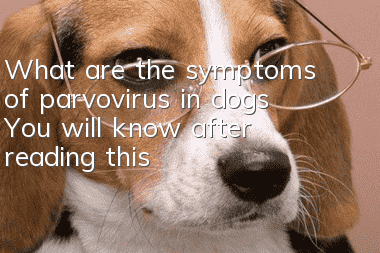What should I do if my dog doesn’t want to go to the hospital?

Although families with pets will have emergency medicines at home, many inexperienced parents are still willing to send their dogs to pet hospitals for treatment. But whenever they arrive at the entrance of the pet hospital, some dogs will start to become restless, even barking, and even trembling all over. What should I do if my dog doesn’t want to go to the hospital?
First, improve the dog’s association with the hospital. If the pet hospital you frequently visit is not far from home, you can take your dog to visit when walking your dog every day, say hello to the staff, and ask the staff to cooperate and prepare some delicious food for the dog. .
Secondly, it is best to train your dog at home on some of the movements it needs when seeking medical treatment. The most typical one is weighing.
Third, dogs have a relatively strong tolerance for pain, so during injections, even if the dog is restrained, a group of people should not surround him. This pressure of not being able to move freely will actually increase its tension and fear. Owners need to have a correct attitude when taking their dogs to the hospital. After all, there are many problems with pet health that we cannot solve at home alone.
What are the physiological indicators of normal dogs?
Average life span: 10-20 years (the average life span of small dogs is generally longer than that of large dogs)
Sexual maturity: between 7-12 months of age
Breeding cycle: 1-3 litters can be reproduced per year, depending on the breed, with an average of 1-6 litters per day
Pregnancy period: about 58 days to 65 days
Normal body temperature: between 37.5 degrees Celsius and 39 degrees Celsius (anal temperature);
Heart rate: 70-130 beats/minute, puppies are about 200 beats/minute;
Breathing: 10-30 times/minute
What are the early signs of health problems in dogs?
Generally speaking, if a dog suddenly behaves very differently from the past, then we all have reason to suspect that there is something wrong with his physical condition. More obvious signs include: dry nose, cough, vomiting, prolonged immobility, anorexia, diarrhea, blood in the stool or urine, etc. If you notice the above signs, you need to seek medical treatment as soon as possible and seize the best opportunity for treatment.
- Can adult dogs only eat one meal a day?
- How do dogs become infected with parvovirus, and how can we prevent infection?
- Reasons why dogs vomit brown liquid
- How to potty train a poodle? Here’s a tip for training your poodle to use the toilet!
- Dog interdigital inflammation with exudate
- The cycle and method of tooth brushing for Husky dogs
- dog postpartum care
- How do you know if your dog has canine distemper? How to treat canine distemper!
- Tips on dog vaccinations and deworming
- How to judge whether a dog is constipated and how to improve constipation symptoms?



